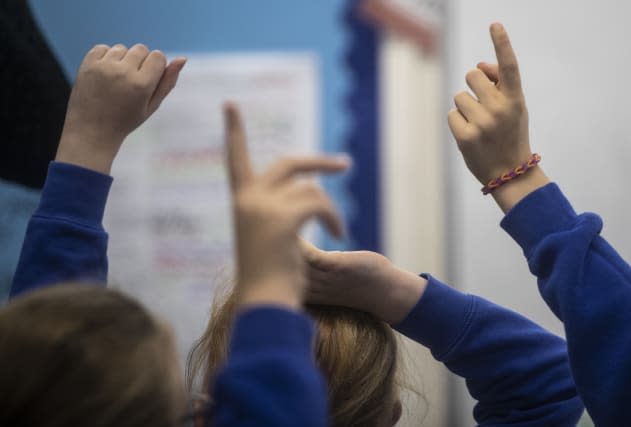Autistic children need time to adjust to face coverings in schools – charity

Autistic children need time to prepare for changes on wearing face coverings within schools, an autism charity has said, after Boris Johnson hinted at a U-turn on the policy.
Tim Nicholls, head of policy and public affairs at the National Autistic Society, warned that face coverings in schools would be another “unexpected change” for autistic children.
Secondary school pupils in Scotland will be required to wear face coverings in between lessons from Monday, while the Prime Minister suggested there could be a change to the current advice for schools in England.
While the current guidance says face coverings are not recommended, Mr Johnson told reporters: “If we need to change the advice then of course we will.”
Please remember today that not everyone can wear a face covering #Autism. Visit our website for a breakdown on face covering rules in England: https://t.co/2YptfZYTIWpic.twitter.com/qiTUv9aSQ6
— National Autistic Society (@Autism) August 23, 2020
Wearing one could feel suffocating and overwhelming for some pupils with autism, while others may have difficulty understanding why it is required, according to Mr Nicholls.
“They are going back to schools that look and feel incredibly different from when they were last there,” he told the PA news agency.
“A lot of autistic children already found school an uncertain and difficult place to be. This is another change, and is going to be another thing that autistic children need to prepare themselves for.
“So the more information we can have ahead of time with clear guidance to schools and for parents and for autistic children as well, the better.
“Because autistic children will need time to get used to this and that’s going to be absolutely key.”
The Scottish Government confirmed on Tuesday that exemptions similar to those in the wider usage of face coverings would apply to the policy, which says autism is a reasonable excuse for not wearing a mask.
Mr Nicholls said that should the policy be implemented in England’s schools, Westminster needs to be clear about how exemptions would apply ahead of schools reopening next week.
It is “vital” there is no stigma attached to those not able to wear a mask, he added.
“What we’ve heard from other settings, shops and transport, is that some of those judgmental looks, attitudes, and being challenged can have the effect on autistic people of essentially them not wanting to go out to the shops, not wanting to take journeys on public transport,” Mr Nicholls told PA.
“The absolute last thing anyone would want is for that to happen with an autistic child not wanting to go to school.
“Autistic children can often already find school an incredibly difficult and overwhelming place, it wouldn’t be right to put another barrier in for them.
“So it’s going to be so important that this policy is done sympathetically, with compassion and with understanding about autism and the needs of autistic children.”


